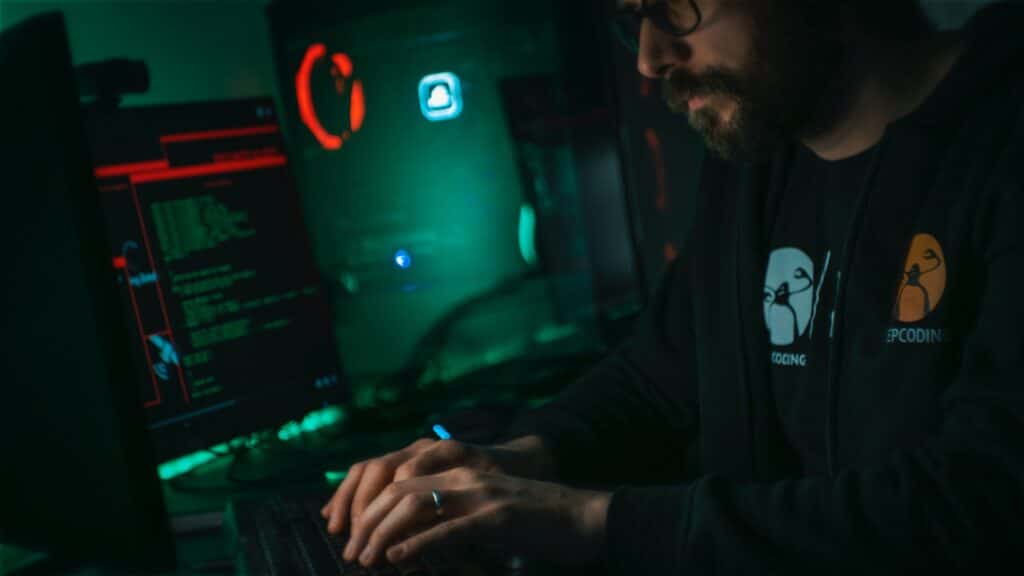The advent of the digital era has led to considerable shifts in the realm of criminal investigations, altering the methods of evidence collection and the resolution and prosecution of cases.
This article delves into the substantial influence of technology on criminal investigations, examining its role in gathering evidence, managing cases, and the ever-changing landscape of the legal system.
IMAGE: UNSPLASH
Digital Evidence And Forensic Technology Advancements
The evolution of forensic technology has transformed the methods in which evidence is obtained and examined during criminal inquiries. Digital forensics specialists are vital in the retrieval, conservation, and scrutiny of electronic evidence.
They utilize expert tools and methods to gather data from computers, smartphones, and other electronic devices, frequently revealing crucial details that can determine the outcome of a case.
Investigative Tools And Surveillance Technology
A collection of surveillance technology and investigative tools are available to law enforcement agencies to assist them in observing and following persons of interest. This encompasses GPS tracking, drone usage, and video monitoring systems.
These technologies offer invaluable perspectives into the actions and whereabouts of those being investigated, facilitating law enforcement’s ability to collect evidence more effectively.
The Significance Of AI In Criminal Investigations
Criminal investigations have seen noteworthy advancements due to artificial intelligence. Algorithms empowered by AI can swiftly examine extensive quantities of data, allowing investigators to discover patterns, relationships, and irregularities that may not be apparent to their human counterparts.
This technology proves especially beneficial in tackling financial crimes, fraud, and large-scale data analysis cases.
Body Cameras
Equipping law enforcement officers with body-worn cameras has emerged as an influential means of ensuring responsibility and transparency. These devices document exchanges between officers and suspects, guaranteeing that evidence is collected in an accurate and unbiased manner.
They play a vital role in settling disputes and presenting crucial evidence when police misconduct is alleged.
Navigating Data Privacy And Digital Rights Challenges
The increasing dependence on digital data presents intricate issues concerning data privacy and individual rights. Achieving equilibrium between gathering evidence and upholding privacy rights proves to be a difficult task.
A criminal lawyer is crucial in making sure that digital evidence is acquired legally and ethically, while safeguarding people’s rights during investigations.
Cybercrime And Cybersecurity Requirements
The emergence of cybercrime, such as hacking, identity theft, and internet scams, has established a novel domain for criminal probes. Law enforcement bodies must collaborate closely with cybersecurity professionals to apprehend cybercriminals and preserve digital evidence.
The cybersecurity field has grown to tackle these rising challenges, with digital evidence serving an essential part in recognizing and charging cybercriminals.
Digital Evidence Presentation In Court
In court, presenting digital evidence demands a considerable amount of technical skill. Criminal attorneys need to possess a solid understanding of the rules that govern digital evidence to ensure its admissibility in court proceedings.
The effective interpretation and presentation of digital evidence depend on the proficiency of lawyers and forensic specialists, which judges and jurors rely on.
The Evolution Of Criminal Investigations
As technological advancements progress, even more significant shifts are anticipated in the future of criminal investigations. Cutting-edge technologies such as blockchain, augmented reality, and quantum computing are expected to influence the way evidence is gathered, evaluated, and exhibited in court settings.
The realm of criminal law must adjust to these advancements to guarantee that justice prevails in an increasingly digital landscape.
The impact of technology on criminal investigations is undeniable, offering both opportunities and challenges for law enforcement and criminal lawyers. The digital transformation has accelerated the collection and analysis of evidence, making it an indispensable tool in solving cases.
However, it also raises questions about privacy, data security, and ethical considerations that require careful navigation in the pursuit of justice.
As technology continues to advance, it is essential for the legal system to strike a balance between progress and ethical practices to ensure that the rights of individuals are upheld while investigating and prosecuting crimes in the digital age.
IMAGE: UNSPLASH
If you are interested in even more technology-related articles and information from us here at Bit Rebels, then we have a lot to choose from.


COMMENTS